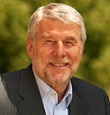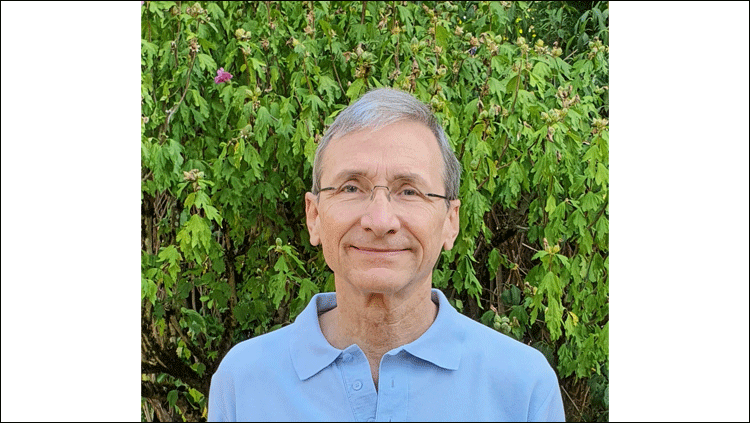Message From the President: Challenges Drive Change

Barry Everitt
This has been and will continue to be a tumultuous year. The need to isolate in response to the pandemic has unfortunately been met with the need to gather in protest against racial inequities. During it all, SfN’s leadership has been navigating the challenges 2020 has presented to meet the needs of our community.
Before getting into the many decisions SfN Council has made over the past few months, I first need to say thank you to the Society’s volunteer leaders. Facing pandemic-induced challenges to their own lives, they embraced the commitment necessary to guide SfN forward during the past six months. Not only that, but my fellow Council members, as well as our Program Chairs, have agreed to extend their terms of service by one year. Our goal in doing so is to ensure continuity of SfN’s programs and decision-making at a time of great financial constraint and, importantly, to oversee the execution of what was the Neuroscience 2020 program; we hope to share this 50th Anniversary Meeting program with you in November 2021.
Charting a Path Forward
Starting in March when the near-global lockdown began to reshape our world, Council has been meeting virtually every month. Our focus was to determine the impact of the pandemic on our members and SfN as an organization.
The decision with the greatest impact on members and SfN concerned the fate of the annual meeting. One of the first steps Council took was to delay abstract submission for Neuroscience 2020 from April to July. At that time, it made no sense to ask members to spend time on an abstract they may never get to present. SfN then began a lengthy process of working with the Walter E. Washington Convention Center and Washington, D.C. Mayor’s office. The goal was to determine if hosting the annual meeting would be permitted given the public health and travel restrictions in place, let alone feasible. Multiple factors led Council to delay abstract submission again, this time to mid-August. However, in early August it became clear that the in-person meeting could not take place in Washington, D.C., and we announced the cancellation of Neuroscience 2020.
Despite cancellation of the annual meeting, we were able to preserve the 2020 awards program. Award winners, including the recipient of the Ralph W. Gerard Prize in Neuroscience, will be announced October 26-29, 2020.
While discussions about Neuroscience 2020 were ongoing, Council and the Program Committee explored alternative meeting formats. One option was to move the entire annual meeting programming online. We decided against that path as it would be impossible to do justice to the massive Neuroscience 2020 program which was clearly not designed for an online-only setting.
We felt that a more effective and viable option was to create a new gathering designed specifically for a virtual environment. The proposal culminated in the announcement of SfN’s Global Connectome: A Virtual Event and I am extremely grateful for the dedicated and enthusiastic work of our Program Chairs, Theme Chairs and Program Committee in undertaking the task of generating a completely new program. The SfN Global Connectome’s program looks to attract the global community of neuroscientists, including those who find participating in regular SfN annual meetings difficult due to time, cost, or other constraints. Attendees will enjoy presentations from longstanding leaders in the field, new session types, and digital abstract sessions throughout the day. You can learn more about the program and submit your abstract starting November 2.
Efforts Toward Equity
As Council worked to adapt SfN to the pandemic, another global event deeply affected us all.
The appalling death of George Floyd under the knee of police in the American state of Minnesota sparked an international response of outrage. Protests organized across the U.S., Europe, and elsewhere served powerfully to remind the world that systemic racism is real and that steps must be taken to dismantle it.
Evidence of racial bias is evident within neuroscience as we lack the demographic diversity of the communities we come from. Take a moment to reflect on the members of your research group and department; think about the faces you see at an SfN annual meeting. It is evident to me that we all need to do a better job of selecting individuals based on the quality of their science that reflects the rich diversity of our communities.
SfN has long hosted and maintained efforts to support Black and other underrepresented minorities in the field. The Neuroscience Scholars Program (NSP) will celebrate 40 years of operation in 2021. Several of the program’s 1,200 alumni have become prominent researchers in the field and serve as SfN volunteer leaders. Additionally, in response to feedback from the membership, SfN organized a Black Lives Matter webinar on Neuronline in July for Black panelists, chaired by Joanne Berger-Sweeney, to speak about the challenges diverse neuroscientists face within the field. This excellent webinar was both well attended internationally and well received, leading to a follow-up live chat in September. As the #BlackInNeuro movement was born and grew online this summer, SfN served to amplify its messaging and promote the content of its first meeting across the Society’s social media platforms. I am excited by the potential of this movement to promote so many talented neuroscientists as well as diversity and inclusion in neuroscience.
This year will be remembered for its staggering challenges and a seemingly non-stop negative news feed. But it is during adversity that growth – of both individuals and cultures – can occur. The renewed drive for equity has encouraged many of us to ask difficult questions and listen to difficult truths. Current public health requirements have enabled many of us, including academic societies, to overcome previous obstacles to exploring virtual gatherings. And an unprecedented global health crisis has cemented the value of basic research in a world eager for solutions to the novel coronavirus and its many health, including mental health, ramifications.
I am extremely disappointed that we will not be able to gather in person this year. But I am confident that when we do see each other again, our community will be stronger than before.





















